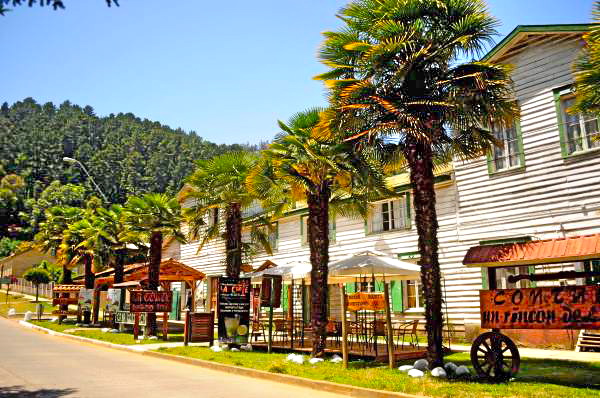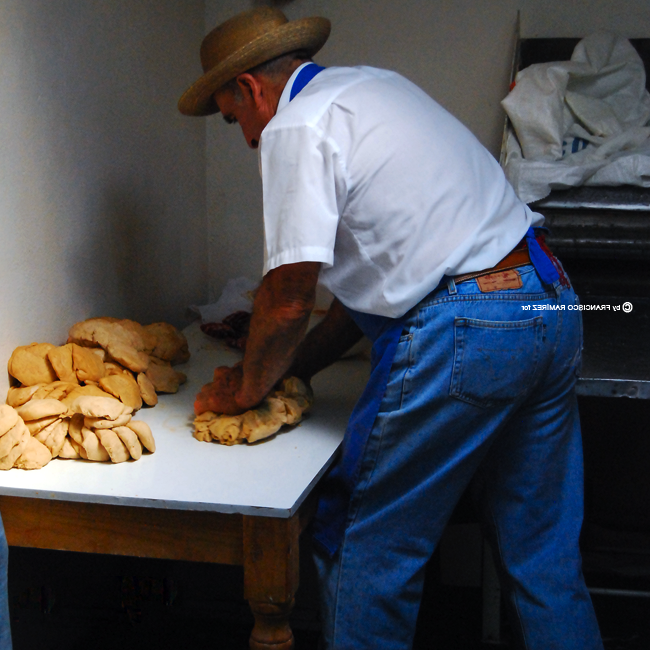Note: Antonio Skarmeta was WINNER of Chile’s National Literature Prize in 2014. In 2011, his novel The Days of the Rainbow, was WINNER of the Premio Iberoamericano Planeta-Casa de América de Narrativa, one of the richest prizes in the literary world (worth $200,000).
“I’m the village schoolmaster. I live near the mill. Sometimes the wind covers my face with flour. I’ve got long legs, and nights of insomnia have stamped dark rings under my eyes. My life is made up of rustic elements, rural things: the dying wail of the local train, winter apples, the moisture on lemons touched by early morning frost…”
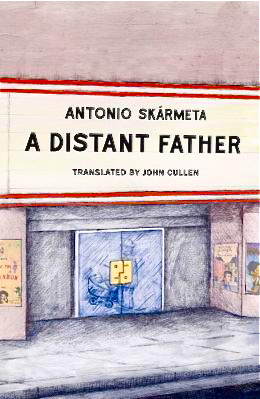 This village schoolmaster, named Jacques, already sounds old, as this small novella begins. In actuality, he is only twenty-one, however, almost a boy, but one who has already seen too much of the sameness of rural life. He has returned to Contulmo, his rural village in southern Chile after college, to be close to his mother, a woman who launders sheets for a living. His French father left them the year before to return to France, shortly after Jacques received his elementary teaching certificate from a college in Santiago. “I got off the train and he got on, boarding the very same car…I didn’t even get a chance to open my suitcase and show him my diploma.” Now Jacques sees no opportunities to broaden his view of life. He does get occasional translation jobs, translating French poetry into Spanish, but these poems are simple, “the things the people around here can understand. Poems by Rene Guy Cadou, village verses, not cathedrals of words,” like the monumental poems published in the Santiago newspapers. Though he is friendly with the local miller, who was his father’s closest friend, he himself is lonely and always sad. “Ever since Dad went away, I want to die.”
This village schoolmaster, named Jacques, already sounds old, as this small novella begins. In actuality, he is only twenty-one, however, almost a boy, but one who has already seen too much of the sameness of rural life. He has returned to Contulmo, his rural village in southern Chile after college, to be close to his mother, a woman who launders sheets for a living. His French father left them the year before to return to France, shortly after Jacques received his elementary teaching certificate from a college in Santiago. “I got off the train and he got on, boarding the very same car…I didn’t even get a chance to open my suitcase and show him my diploma.” Now Jacques sees no opportunities to broaden his view of life. He does get occasional translation jobs, translating French poetry into Spanish, but these poems are simple, “the things the people around here can understand. Poems by Rene Guy Cadou, village verses, not cathedrals of words,” like the monumental poems published in the Santiago newspapers. Though he is friendly with the local miller, who was his father’s closest friend, he himself is lonely and always sad. “Ever since Dad went away, I want to die.”
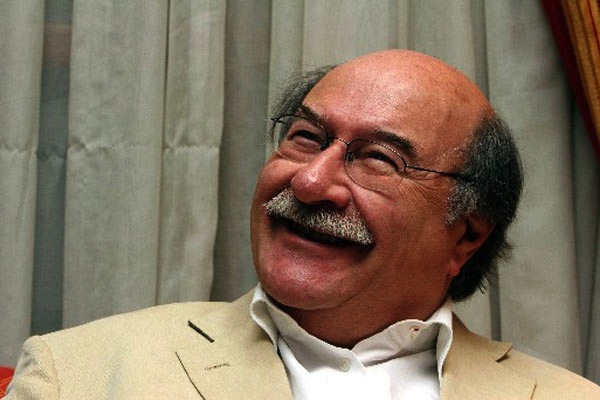
In looking for a photo of the author, I discovered that virtually every photo of him shows him smiling, a welcome change from the norm.
His life changes when one of his students, a fifteen-year-old boy wants to have a man-to-man conversation with him, then asks outright if Jacques has been to the whorehouse in Angol, the next big town a train-ride away. The boy wants to know what it costs for a woman. Soon Jacques sets out with the miller to find the answer, a quest which produces answers to some questions he has not even thought to ask.
In this simple, even delicate, novella, author Antonio Skarmeta explores in the clearest, cleanest possible language – language which even the citizens of Contulmo would understand – some of life’s biggest questions and the answers which Jacques discovers in the course of one week. With an honesty which betrays no trace of self-consciousness or sense that he is “teaching” anything, Jacques explores big questions of identity, place, responsibility, sex, love, and reconciliation.
In many ways, the novel is reminiscent of another novel by Skarmeta, one which he developed into a screenplay for Il Postino: The Postman. In this story, the young son of a fisherman becomes a messenger boy for Nobel Laureate Pablo Neruda, a Chilean poet living in exile on an island off the coast of Italy (Capri). Like Jacques, the young fisherman is looking for more from life than what he is finding in his community, and as he discovers love, he, too, finds his world changed. That story, like A Distant Father, is also simple and powerful in its yearning for change but acceptance of reality.
When, at last Jacques has the chance to go by train to the next town to a whorehouse for the first time, he is astonished to discover that his father is living in the town and managing a cinema, the point from which the rest of the action evolves. In a lovely conversation in which both characters reveal their heartfelt feelings, Jacques discovers all the many aspects of his father’s life about which he has known nothing and which come to him as surprises. Later on the train home, he develops a fever, and in the midst of it, he records this thought: “It’s not the case that words circle uncertainly around subjects. It’s the world itself that’s uncertain; words are precise.” When he decides to take action on several different fronts, his coming-of-age is complete.

While the engineer is waiting to drive the train from Angol back to Contulmo, he covers himself with a traditional Araucan poncho and nods off to sleep.
Skarmeta reveals more in one sentence than most other authors do in paragraphs or pages. Always unpretentious in his language and clear in his meanings, he presents his story in ways so close to real life that it becomes difficult to remember, as one is reading and imagining these scenes, that this is a novel and not real life. One enters into the moment with the author, and there is no sense that he is in any way separate from the story which you are sharing with him. It is a stunning experience, close to drama in its impact and in its well-wrought and very visual scenes. A Distant Father connects with the reader directly and immediately, its emotions very close to the surface and its impact powerful.
A Distant Father can be read in about an hour, or a bit more, and when I finished, I gave the book to my husband (a former English major) who usually prefers non-fiction to fiction these days. He read it straight through, unable or unwilling to stop. Though we have both tried to think of other writers who can perform miracles like this, neither of us can recall any other writer whose effect is so instantaneous and so wonderfully effective on an emotional level. Totally lacking in sentimentality, the novella is powerful and emotionally resonant, an addition to my Favorites List for 2014.
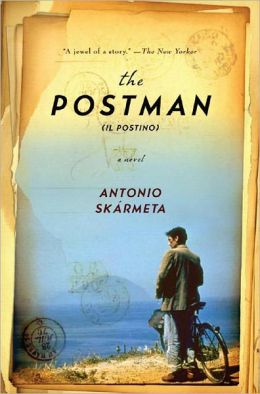
Photos, in order: The author’s photo comes from http://letrasyceluloide.blogspot.com/ It is virtually impossible to find a picture of him without seeing a smile on his face.
Photos of Contulmo, Jacques’s town, seem to be focused on this block of buildings. Almost every photo shows this block from some angle. http://diario.latercera.com/
A baker at work, like the baker who was friends of Jacques and his father, is shown on this blog: http://eatwineblog.com by Liz Caskey.
An exhibition of old Araucan ponchos was held recently here: http://proa.org/
One of the works for which Skarmeta is famous is the novel Ardiente Paciencia (Burning Patience), which became the basis for the 1985 movie, Il Postino: The Postman: http://en.wikipedia.org/
ARC: Other Press
